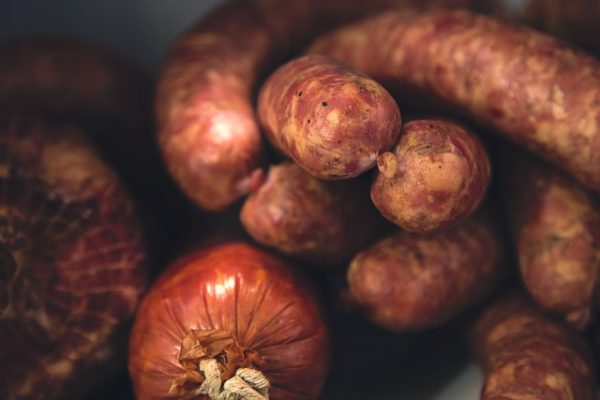People in 18 States May Have Gotten Sick From Carrots Contaminated With E. coli
 The Centers for Disease Control has announced a multistate outbreak of E. coli O121 infections linked to supplier Grimmway Farms bagged recalled, organic carrots and baby carrots, which were sold under several brand names. One person has died and at least 38 people have become ill after the outbreak. The actual numbers may be much higher. The Food and Drug Administration has publicly stated that the carrots may have been contaminated with the Shiga toxin-producing kind of E. coli, which most affects children age 5 years or under and adults who are 65 years or older If you suffered E.coli due to contaminated carrots, you should call the seasoned Chicago-based lawyers of Moll Law Group to learn your legal options. We represent clients around the country and have experience pursuing damages on behalf of those injured by contaminated foods or defective products.
The Centers for Disease Control has announced a multistate outbreak of E. coli O121 infections linked to supplier Grimmway Farms bagged recalled, organic carrots and baby carrots, which were sold under several brand names. One person has died and at least 38 people have become ill after the outbreak. The actual numbers may be much higher. The Food and Drug Administration has publicly stated that the carrots may have been contaminated with the Shiga toxin-producing kind of E. coli, which most affects children age 5 years or under and adults who are 65 years or older If you suffered E.coli due to contaminated carrots, you should call the seasoned Chicago-based lawyers of Moll Law Group to learn your legal options. We represent clients around the country and have experience pursuing damages on behalf of those injured by contaminated foods or defective products.
Consult Moll Law Group About Your Food Safety Claim
On November 16, 2024, Grimmway Farms recalled multiples sizes and brands of bagged organic baby and whole carrots due to risk of E.coli contamination. The known cases of E.coli happened in 18 states and from September 6, 2024-October 28, 2024. It’s most likely, officials says, that the carrots being sold in the grocery store now are not affected, but carrots you have in your home might be, even if you’re not in one of those 18 states but are anywhere in the country. It’s important to throw those bagged, organic carrots away and not consume them or return them to the place you bought them.
These products are likely no longer in stores for sale but may still be in your home. The CDC advises throwing away any recalled organic carrots that are in your freezer or refrigerator. You should also wash and sanitize anything that touched them in the dishwasher or by using soap and hot or boiling water. Be on the lookout for serious symptoms. If you have signs of dehydration such as dizziness; diarrhea for more than 3 days that doesn’t improve; vomiting that is so significant you can’t even keep down liquids; or a fever that exceeds 102 degrees, Fahrenheit, you should call your doctor, as these are considered serious E. coli symptoms.
 Illinois Injury and Mass Tort Lawyer Blog
Illinois Injury and Mass Tort Lawyer Blog


 The United States Department of Agriculture has
The United States Department of Agriculture has  During recycling, according to a recent study,
During recycling, according to a recent study,  A new study has found that dark chocolate and other similar cocoa items are contaminated with cadmium and lead. These metals are neurotoxins and they’ve been linked to developmental issues in children, chronic diseases, and cancer. In a sense, because they are in the soil where crops are grown, these heavy metals are present in many different agricultural products, but some crops are more contaminated because there is excessive use of metal-containing fertilizers or proximity to pollution. Chocolate is grown on land that is less contaminated and where fewer pesticides are used. Yet, the journal Frontiers in Nutrition has found that organic dark chocolate—so often recommended by health magazines for certain beneficial properties—contains some of the highest levels of cadmium and lead. If you believe you or your child was harmed by
A new study has found that dark chocolate and other similar cocoa items are contaminated with cadmium and lead. These metals are neurotoxins and they’ve been linked to developmental issues in children, chronic diseases, and cancer. In a sense, because they are in the soil where crops are grown, these heavy metals are present in many different agricultural products, but some crops are more contaminated because there is excessive use of metal-containing fertilizers or proximity to pollution. Chocolate is grown on land that is less contaminated and where fewer pesticides are used. Yet, the journal Frontiers in Nutrition has found that organic dark chocolate—so often recommended by health magazines for certain beneficial properties—contains some of the highest levels of cadmium and lead. If you believe you or your child was harmed by  There have been three deaths and fifty illnesses requiring hospitalization nationwide in a
There have been three deaths and fifty illnesses requiring hospitalization nationwide in a  The Centers for Disease Control and Prevention
The Centers for Disease Control and Prevention 